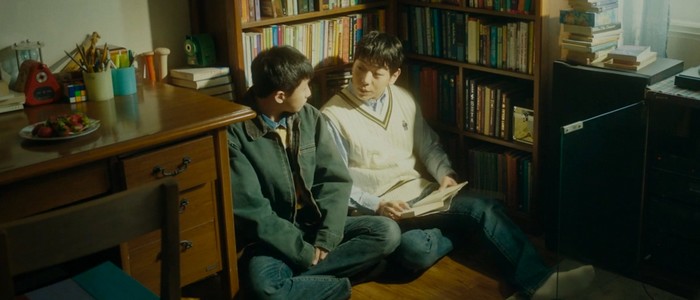
So Long, See You Tomorrow is a Korean movie with a storytelling twist, which unveils as the plot progresses. The main character is a gay high school student who develops a crush on his charismatic best friend. This teen relationship becomes one of his lifelong regrets. Decades later, the adult protagonist remains haunted by his unattainable love. As he navigates life wistfully, every experience seems interconnected and draws mysterious parallels.
The brilliance of So Long, See You Tomorrow is astonishing. With a creative plot structure and complex narrative themes, the movie offers many insightful layers. Each well-constructed story arc develops poignantly. As the protagonist goes on a fascinating journey, the emotional climaxes and evocative performances have the power to move me to tears. While romance isn't the primary focus, this film includes moving messages about love.
So Long, See You Tomorrow Summary
Title:
안녕, 내일 또 만나
Movie Info:
South Korea (2023)
Genre:
Drama
About:
So Long, See You Tomorrow is a sad & emotional film.
BL Content:
Yes, there's a gay romance.
Plot
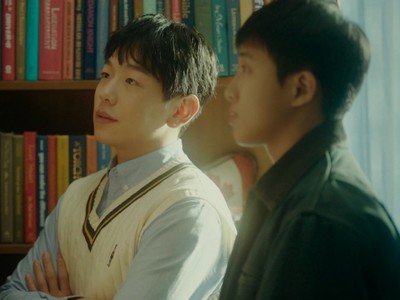
Dong Joon is a high school student who lives with his parents and sister, Dong Hee. He is neighbours with his best friend, Kang Hyun. They share the same apartment complex. Dong Hee and Kang Hyun have known each other for a year. These teenage boys get along well and spend all their time together. Dong Hee, who lacks self-confidence, is captivated by Kang Hyun's sparkling charisma and worldly knowledge. Dong Hee idolizes his friend and puts him on a pedestal.
Kang Hyun has a close relationship with his mom, a university professor and poet. This well-cultured teen has many accomplishments, including literary awards and a national championship at a debate contest. Kang Hyun introduces his friend to many hobbies, from literature to music. When hanging out, Dong Hee marvels at his friend's book collections, music records, and travel souvenirs. Kang Hyun's hero is Philippe Petit, a famous high-wire artist. Kang Hyun follows Philippe's philosophy about living each day adventurously, like navigating a tightrope.
One day, Kang Hyun's world crumbles. His mom's tragic death sends him into a mental collapse. He causes so much havoc that the cops arrive to detain him. As they usher Kang Hyun into a police vehicle, Dong Hee watches his friend's disgrace from a distance. Typically, Kang Hyun seemed calm and composed. It is the first time Dong Hee has seen him so vulnerable. Despite Kang Hyun's arrest, Dong Hee chooses not to intervene. He remains a passive bystander as his friend departs.
After that chaotic night, Dong Hee and Kang Hyun never met again. The two teens went their separate ways. Decades later, Dong Hee is now in his 40s. He works as a high school teacher who lives by himself. Dong Hee is single and uses dating apps to meet guys. However, he is closeted and hasn't disclosed his sexuality. His sister, niece, and brother-in-law don't know that he is gay. Young Ji, his niece, once teased her uncle for keeping so many secrets that it may kill him.
Dong Hee meets Little Hippo through the dating app. They agree to meet up at a bar. However, Dong Hee feels humiliated when his date is a no-show. He leaves an infuriating message about getting stood up. A while later, Dong Hee receives a mysterious phone call from someone unexpected. Around the same time, Dong Hee's sister contacts him and wants them to meet in person. She has an urgent announcement to make.
So Long, See You Tomorrow Trailer
So Long, See You Tomorrow Cast
Characters
Dong Joon
Shim Hee Sub (심희섭)
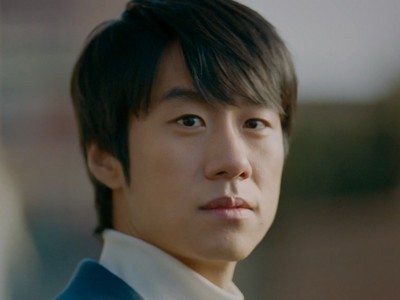
Dong Joon is a 42-year-old high school teacher. This lonely bachelor lives by himself and uses dating apps to meet guys. He is closeted and feels self-conscious about his sexuality. Dong Joon is close with his sister and niece, but they don't know about his same-sex attraction. Dong Joon is an avid reader, a hobby he picked up during his teenage years.
Sim Hee Seop
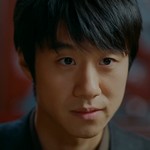
Sim Hee Seop (심희섭) is a Korean actor. He is born on February 26, 1986. His first BL project is the 2021 gay movie, So Long, See You Tomorrow.
Young Dong Joon
Hong Xa Bin (홍사빈)
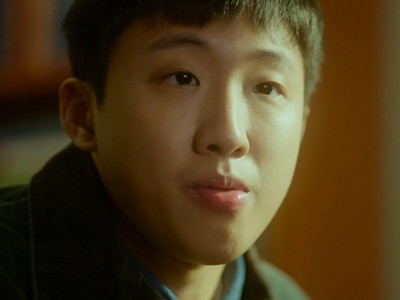
Dong Joon is a teenager who lives with his parents and sister. He is also neighbours with Kang Hyun, sharing the same apartment complex. After moving in, they quickly became friends. Dong Joon lacks self-confidence and gets bullied at school, but Kang Hyun stands up for him. Dong Joon idolizes his talented friend and feels captivated by his charisma.
Hong Xa Bin
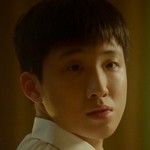
Hong Xa Bin (홍사빈) is a Korean actor. He is born on April 18, 1997. His first BL project is the 2021 movie, So Long, See You Tomorrow.
Kang Hyun
Shin Joo Hyup (신주협)
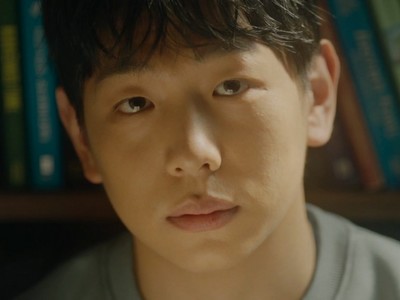
Kang Hyun is a high school student and Dong Joon's best friend. They are neighbours in the same apartment complex. Kang Hyun has a close relationship with his mom, who is a professor. Kang Hyun has many achievements, including literary awards and a debate competition championship. He enjoys many diverse hobbies, including books, music, and baseball.
Shin Joo Hyup
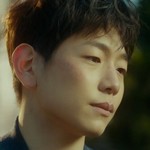
Shin Joo Hyup (신주협) is a Korean actor. He is born on December 1, 1993. His first BL project is the 2021 movie, So Long, See You Tomorrow.
Supporting Cast
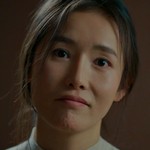
Dong Hee
Kang Ji Won (강지원)
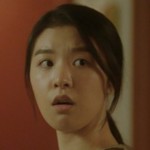
Young Dong Hee
Kim So Hee (김소희)
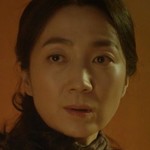
Dong Joon's mother
Kim Joo Ryoung (김주령)
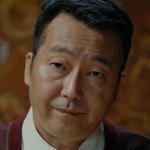
Dong Joon's father
Kim Hak Seon (김학선)
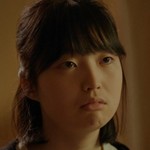
Young Ji
Kang Chae Yoon (강채윤)
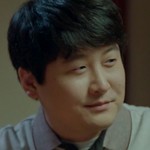
Sung Jin
Jang Jong Ho (장종호)
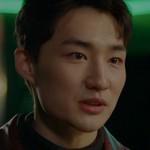
Ju Ho
Kweon Young Chan (권영찬)
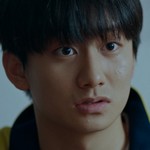
Min Ho
Yoo Jae Sang (유재상)
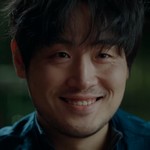
Sung Il
Kwon Dong Ho (권동호)
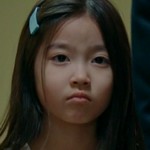
Young Ji
Lim Soo Jung (임수정)
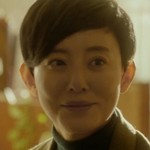
Kang Hyun's mother
Yoon Da Gyeong (윤다경)
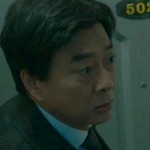
Kang Hyun's father
Son Seong Chan (손성찬)
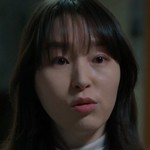
Professor Kang
Ok Go Woon (옥지영)
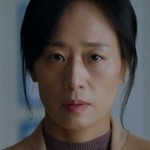
Director
Woo Mi Hwa (우미화)
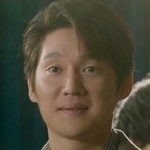
Kang Hyun
Cast Highlights
- Sung Il's actor (Kwon Dong Ho) has a supporting role in the 2018 Korean gay movie In Between Seasons.
So Long, See You Tomorrow Review
Review
Movie Review Score: 8.9
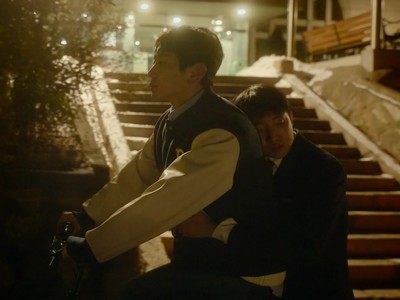
So Long, See You Tomorrow is a brilliant movie due to its innovative storytelling twist. The plot has many insightful layers, even though the complexity only reveals itself over time. This well-constructed narrative becomes more meaningful once you understand the creative technique. Beyond showing immense imagination, the intelligent film also explores profound narrative themes. From life philosophies to self-discoveries, each message in So Long, See You Tomorrow resonates powerfully.
Not only is So Long, See You Tomorrow intellectually stimulating, but it also excels in telling an emotional story. The movie's first arc is the saddest. It focuses on the adult protagonist who has lived in turmoil since his failed adolescent crush. The heartbreaking film captures the delicate nuances of his sorrow, from wistful memories to deep-rooted insecurities. As the angst accumulates, the memorable climaxes can move me to tears. The cast delivers arresting performances and displays raw anguish, especially the actors who portray the teens (Hong Xa Bin & Shin Joo Hyup).
As So Long, See You Tomorrow transitions into the second arc, the story undergoes a fascinating transformation. It showcases a different side of the protagonist, who doesn't mope around anymore. He seems assertive and has agency over his life. Although the melancholy still lingers, the hopeful exchanges carry an empowering tone. The movie exhibits an elegant restraint by avoiding excess melodrama. The plot remains compelling even without constant theatrics. It relies on subdued feelings, poignant introspection & sombre dialogue to evoke a quiet dignity.
The third arc is about redemption and reconciliation. The protagonist wants to make amends for the regrets from his past. This portion of the film seems the weakest, lacking the same eventfulness as earlier segments. The solemn conversations and flashbacks don't engage me. Also, the movie suffers from its extended length. Fatigue sets in around the two-hour mark of the cinematic experience. Despite the plot losing steam, I still appreciate the mature themes and sensitive messages. The story remains beautifully sophisticated, impressing me with its complex ideas.
So Long, See You Tomorrow features a gay protagonist. His sexual orientation plays a significant part in the plot, which often references LGBTQ+ topics. With that said, the romantic content isn't prominent. This movie only emphasizes the emotional bond between the leads during their teenage years. Yet, it's missing the flirtation and seduction in conventional love stories. Besides a brief kiss, that's the extent of the physical intimacy. I want more substantial scenes depicting the relationship, highlighting the attraction, and exploring the passionate desires.
So Long, See You Tomorrow ends exhilaratingly. All the previous plots come together in a meticulously interconnected narrative. The movie unleashes powerful emotions like fierce tidal waves, ushering one epic moment after another. The iconic final scene gives me goosebumps, particularly that last line. Along with dreamy aesthetics and an exquisite soundtrack, the film exudes stunning artistry. Despite its magnificence, So Long, See You Tomorrow is criminally underrated. This intricate story deserves respect, recognition, and resounding appreciation.
Summary
Complex story
So Long, See You Tomorrow reveals a clever storytelling twist as the plot develops. It explores profound emotions, poignant introspection, and philosophical themes in a meticulously crafted narrative.
Emotional romance
The movie emphasizes the couple's emotional connection, but there isn't enough flirtation or seduction. Besides a brief kiss, this sad love story needs more scenes highlighting the attraction.
Sensational acting
The cast delivers arresting performances, capturing the raw anguish during emotional climaxes. The actors who portray the teens (Hong Xa Bin and Shin Joo Hyup) are superb.
Happy ending
So Long, See You Tomorrow has a happy ending that ties up all the previous plots in an interconnected narrative. The last few scenes are uplifting and emotionally charged, including an epic final line.
Stunning artistry
With an elegant soundtrack and mesmerizing visuals, this movie displays stunning artistry. It conveys a subtly lingering melancholy in the atmosphere. I love the dreaminess of the teenage memories.
89%
So Long, See You Tomorrow is a brilliant movie with thoughtful themes & exhilarating emotions. The creative storytelling twist reveals itself over time, adding nuances to the sophisticated plot.
So Long, See You Tomorrow Movie Explained
Analysis
- Dong Joon
- Kang Hyun
- Fearless
- Downfall
- Plot twist
- Cowardice
- Family
- Courage
- Ambition
- Momentum
- Stability
- Empowerment
- Opportunity
- Escape
- Humility
- Abandonment
- Redemption
- Growth
Dong Joon
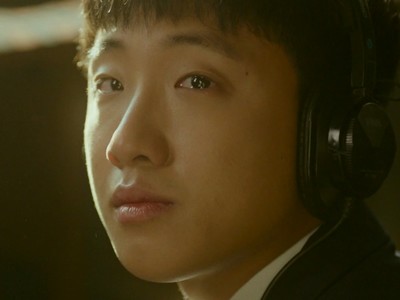
Before he met his best friend, Dong Joon lived unhappily. He was quiet, awkward, and bullied at school. In the opening scene, he makes a troubling statement: "I want to be me in another universe. I hate the current me." His words reflect a low self-esteem and tormented state of mind. Dong Joon adds how it wasn't a spur-of-the-moment thought. He had been mulling over his discontent for quite some time. Imagine the perpetual anguish he must have suffered to reach this devastating conclusion about his existence.
Besides the schoolyard bullying, Dong Joon is also depressed due to his repressed sexuality. As a closeted gay youth in a conservative society, he faces a heavy emotional toll. Dong Joon keeps his same-sex attraction as a shameful secret, not letting anybody else know. His homophobic dad only adds to the psychological burden. The frivolous nickname for his son, "flower shop girl", is meant to ridicule him. For a gay teenager already struggling with his sexual identity, the gendered mockery intensifies Dong Joon's turmoil.
Enter Kang Hyun, the new neighbour who changes the trajectory of Dong Joon's adolescence. At age sixteen, this intelligent youth displays a rare adult sensibility. He doesn't join the others in terrorizing Dong Joon. Instead, Kang Hyun stands up against the bullies. He also comforts his friend. "You can cry, Dong Joon. Vent to me, get angry, scream, and keep living. You don't need to become you in another universe, because you can be content with the version of you in this universe." His advice sounds wise and insightful, exceeding the maturity you expect from a teenager.
Kang Hyun
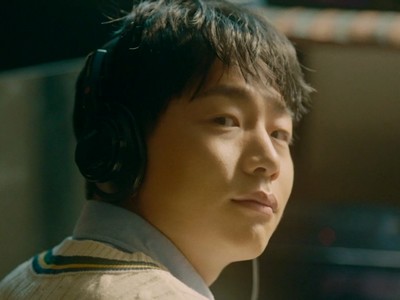
Kang Hyun comes from a cultured upbringing. His mother, a poet and professor, exposes him to many diverse hobbies. Literature shapes his knowledge, while debate competitions hone his critical analysis. Music cultivates his artistic tastes, whereas baseball polishes his physical abilities. This teenager is well-rounded in every aspect. Kang Hyun's most valuable skill is the ability to think for himself. Unafraid to go against the norm, he has unique ideas from a nuanced perspective.
Due to his worldly sophistication, Kang Hyun becomes a confident and self-assured youth. His natural charisma influences Dong Joon, who mirrors his friend's interests. They read similar books, have mutual tastes in music, and even share the same habits. In one scene, Kang Hyun playfully puts a thumb on his nose during a book recommendation. Decades later, the adult Dong Joon copies his friend's gesture when talking to his niece. The imitation is a deliberate storytelling choice, demonstrating Kang Hyun's transcendent impact on Dong Joon's life.
Like Dong Joon, Kang Hyun is also gay. He seems enlightened about his sexuality, not letting it affect his confidence. As the two teens spend time together, they develop an attraction. During an exchange, Kang Hyun recommends "Giovanni's Room", a renowned classic in LGBTQ+ literature. Through this niche book referral, the underlying subtext is that Kang Hyun has come out to his friend. Simultaneously, he suggests that Dong Joon is inclined the same way. Dong Joon, who felt alienated due to his repressed sexuality, has found a like-minded companion.
Fearless
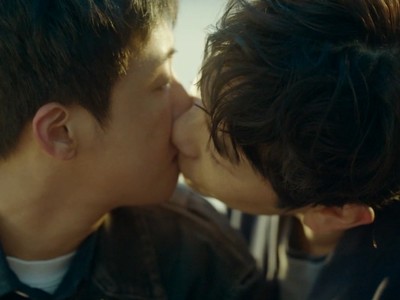
Kang Hyun's hero is Philippe Petit. This legendary high-wire performer navigated across famous tall buildings. Kang Hyun follows his idol's mantra about living on the edge. He enjoys the thrills of adventures and defying mundane routines. Kang Hyun acknowledges the risk of failure, which feels like falling from the tightrope. Yet, this danger can be invigorating if he keeps his balance. Kang Hyun becomes such a high achiever due to his dauntless nature. He isn't afraid of the worst outcomes when trying new experiences.
Kang Hyun's boldness applies to his love life. He takes the initiative of pursuing a same-sex romance. Otherwise, the cowardly Dong Joon would've never made the first move without his friend's assertiveness. Courage also translates into remarkable self-confidence. Dong Joon gets emotional when discussing the bullying and his dad's mockery. Kang Hyun responds by kissing him in public. This gutsy display of affection is Kang Hyun's way of encouraging his companion. Don't feel insecure about yourself. Be brave and open about your attraction.
Besides taking pride in his sexuality, Kang Hyun's advice extends to other experiences. Fortune favours the bold, whereas fear can prevent you from fulfilling opportunities. You won't achieve your most incredible feats if you're scared of everything. Philippe Petit certainly didn't let paranoia overtake him whenever he got on the tightrope. By the same logic, Kang Hyun believes that being ambitious requires fearlessness. Leading by example, he motivates Dong Joon to stop being meek and passive. Don't allow those pesky insecurities to dictate your whole life.
Downfall
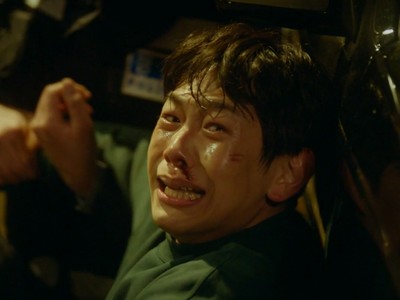
On the night of his mother's suicide, Kang Hyun has a mental meltdown for the entire neighbourhood to witness. At this point, the story hasn't revealed the circumstances of her death. Yet, the actor's anguish is so urgent and alarming that I get teary-eyed just from watching him. Wow, his performance is moving! Stricken by grief, Kang Hyun's fall from grace is distressing. He doesn't just suffer a tumble, but it's a rapid descent into delirium. He causes such a riot that the police must arrest him for public disturbance.
Dong Joon is one of the spectators in the crowd. During the commotion, the two teens lock eyes briefly, but Dong Joon averts his gaze out of self-consciousness. Many emotions are happening in this moment. One is grief. Anyone would be sad to hear about a suicide, especially if the tragedy happens to a close friend. Another is shock. Kang Hyun's psychological instability appears disturbing. Dong Joon has never seen him lose composure like this before. A third feeling is helplessness. Our socially awkward protagonist doesn't know how to comfort his distraught friend.
Dong Joon could have intervened or offered emotional support, yet he froze on the spot. Few people are prepared to handle such an intense psychological crisis, let alone an inexperienced teen. Later, Dong Joon saw an opportunity to talk to Kang Hyun, but he allowed the moment to pass. Driven by fear, his nature is to stay passive and do nothing. He lacks the courage to approach his bereaved companion, not knowing what to say or how to express his love. His cowardly inaction becomes a defining moment in Dong Joon's life. It turns into one of his lifelong regrets.
Plot twist
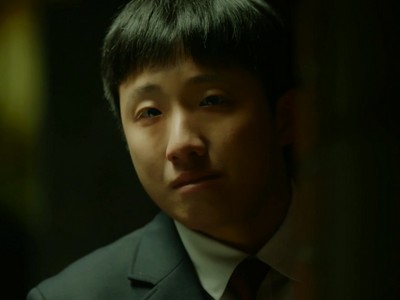
The plot twist in So Long, See You Tomorrow involves three alternate universes. Each represents a version of Dong Joon's adult life after avoiding Kang Hyun on that fateful night. Decades later, Dong Joon is now in his 40s and hasn't communicated with his old friend since then. Kang Hyun moved away while recovering from his mom's death. Every timeline portrays Dong Joon's future differently, changing his career, family situation, love life, and mindset.
The beauty of this twist is that you don't realize it at the time. During the movie's first arc, you assume it's a regular time skip in the narrative. After the second arc starts, you'll realize it's another version of Dong Joon in a separate universe. (For the record, I was oblivious and only caught on during the third arc. Oh, that's what they're trying to do! 😓) In one timeline, he lives in fear. In another, he finds his courage. Each lifestyle produces a different set of outcomes, affecting his happiness. There are similarities and discrepancies between Dong Joon's circumstances.
The story foreshadows Dong Joon's mindset at the start of each arc:
In Universe #1, the adult Dong Joon continues living passively. He's closeted and still struggling with his sexuality. The first scene shows him hesitating in front of a gay bar. He loiters around and waits nervously. It symbolizes Dong Joon's inaction in life.
In Universe #2, the adult Dong Joon is living ambitiously. He seems more outgoing and doesn't hide his sexuality. The first scene shows him walking up the stairs hastily. He discusses career plans on the phone. It symbolizes Dong Joon moving on and making progress.
In Universe #3, the adult Dong Joon gets a fresh start in life. He cuts ties with his family and relocates from his hometown. The first scene shows him jogging outside without anyone nearby. It symbolizes how Dong Joon has been running away from his problems.
Cowardice
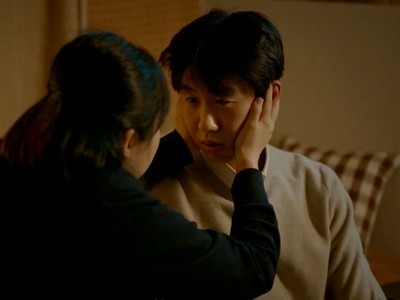
The first alternate universe is the saddest because Dong Joon's cowardice permeates every facet of life. After that fateful night of inaction, he has retreated into his shell and continues to be meek. The story highlights how Dong Joon gave up on an opportunity to study overseas. It was a rare chance to grow academically and try new experiences. The well-travelled Kang Hyun would've gone on this exchange program. Yet, Dong Joon stayed passive as always. The fear of living in a new country diminished his potential.
Due to his cowardice, Dong Joon is still closeted. Besides not coming out to his family, he seems uncomfortable around same-sex affection. When Dong Joon visits a gay bar, he averts his gaze and behaves nervously. You'd hope a man in his 40s finds peace with his sexuality, yet it remains a source of shame. In addition, Dong Joon is a teacher who endures homophobic abuse from his students. The schoolyard bullying he experienced during his youth persists decades later. Their torment affects him psychologically, contributing to his perpetual self-loathing.
Dong Joon's blatant depression causes his family members to worry. His sister scolds him for his unhealthy habits and desolate love life. Likewise, his niece points out how she has never seen him laugh. She assumes her uncle will spend his future alone. Young Ji encourages him to share his problems, yet Dong Joon is too scared of being vulnerable. Opening up about his insecurities is his biggest fear. The niece jokes that keeping too many secrets will kill him, jestful words with a pointed truth. Dong Joon lives so dishonestly that his existence already feels depleted.
Family
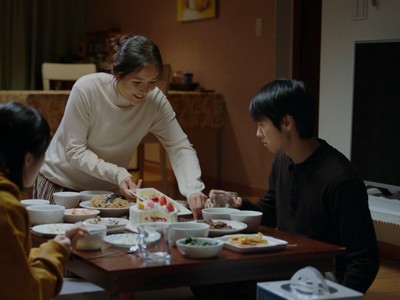
Although Dong Joon leads a pitiful existence, there's one upside. The perk of his passive lifestyle is that he remains close to his family. Even into his adulthood, he lives with his sibling. You can tell from their interactions that the sister, the niece, and the brother-in-law cherish Dong Joon. They express their concerns for him out of love. By comparison, Dong Joon is distant from his relatives in the other two universes. Unlike this timeline, they barely talk to each other.
You may notice the differences when comparing Dong Joon's family interactions in the three universes:
In this timeline, his niece is attached to him. She hangs out at his house and chit-chats with her favourite uncle like a friend. Yet, Young Ji only gives a polite greeting in the second timeline. He's a distant relative to her. Even worse, she doesn't recognize him in the third universe. He's a total stranger.
In this universe, Dong Joon's sister reveals her cancer diagnosis during a family visit. She can deliver the intimate news to him in person. Yet, he must find out over the phone in the other two parallel worlds. It's worse in the third timeline because the brother-in-law can't contact him. This version of Dong Joon has cut off family ties so severely that he almost doesn't realize his sister is dying.
Dong Joon's brother-in-law hugs him in all three universes. In the first timeline, the embrace happens after Dong Joon learns about the cancer diagnosis. He receives immediate consolation. In contrast, the other two hugs only occur at the hospital. The differences highlight how Dong Joon is isolated and doesn't have family support to lean on.
Dong Joon is fortunate enough to have a valuable ally in his sister. A poignant flashback shows the two siblings holding hands near their mother's deathbed. Trauma has solidified Dong Joon and Dong Hee's bond because only they can understand each other's pain. Despite his secrecy, Dong Hee can sense her brother's suffering and wants to alleviate his psychological burden. She remains his biggest champion until the end. "I know everything. I'm always on your side." Her final words are meant to empower Dong Joon, giving him the confidence to live reassuringly.
Courage
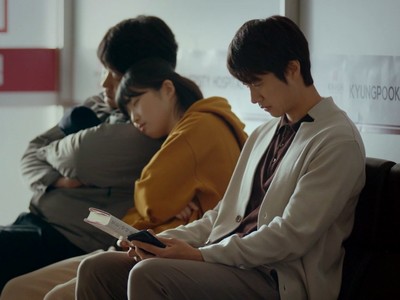
Dong Joon meets Little Hippo on a dating app, an anonymous hook-up to ease his loneliness. In a scandalous twist, Little Hippo turns out to be one of his high school students. While Dong Joon's outrage is understandable, Ju Ho has no sinister intentions. "You look like you need someone to talk to." The gay teenager has also struggled with his sexuality in the past. As his teacher becomes the target of homophobic torment, Ju Ho wants to show allyship. He offers support from one gay man to another.
Ju Ho is similar to Kang Hyun. This precocious teen has a cultured upbringing and thinks maturely. Ju Ho will also study overseas, an opportunity Dong Joon had once turned down. The story juxtaposes these two characters, highlighting our protagonist's cowardice and his companion's courage. Dong Joon's conversation with Little Hippo ends in hostility. Even so, Ju Ho remains sympathetic and roots for his closeted teacher to live without regrets. Dong Joon has heard similar advice from his sister, niece, and mother. Everyone wants him to conquer his insecurities.
"Live with courage." Despite his mother's advice, Dong Joon cowered in doubt. Yet, there's hope for our protagonist. When Dong Joon cries in the hospital, his niece comforts him. It mirrors a past exchange, where she urged her uncle to open up. Finally, Dong Joon isn't scared to be vulnerable around others. Kang Hyun once told his friend to cry it out. Tears are a form of self-expression that can liberate him from his fears. The last scene shows Dong Joon holding a phone and Kang Hyun's book. The movie asks: will he find the courage to contact his estranged friend?
Ambition
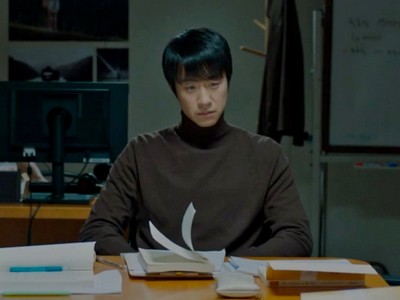
The movie's second arc shows a different version of Dong Joon. Unlike the previous iteration, our protagonist seems assertive in this alternate universe. He has followed Kang Hyun's advice about taking risks and embracing unknown adventures. A notable change is that Dong Joon chose to study overseas. After his exchange program, he lived and worked in the United States for ten years. This worldly experience influences Dong Joon significantly, giving him confidence in life.
Taking risks has paid off in terms of Dong Joon's job prospects. His academic background gives him better employment opportunities. Out of the three parallel worlds, he has the most accomplished career in this timeline. He works as a college professor, a prestigious position that commands respect from others. The lucrative role comes with comfortable working conditions. None of the students dare to taunt him in the classroom, that's for sure. Compared to life as a miserable high school teacher, Dong Joon thrives in his professional success.
Dong Joon's ambition has altered his personality. He seems more outgoing than his counterparts in the other timelines. His busy schedule ranges from symposiums to social gatherings. In addition, Dong Joon becomes direct. He isn't scared of upsetting others with his bold opinions. Sometimes, his confidence borders on arrogance. This academic big shot carries an air of pretentiousness around coworkers or students. Most of all, Dong Joon is gutsy. He doesn't hide his sexuality and dares to live as openly gay. Dong Joon finally gains his pride.
Momentum
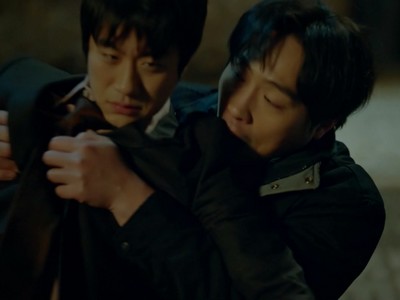
You may have noticed Dong Joon moving around frequently during the movie's second arc. We see him wandering a lot, especially up and down the stairs. Dong Joon travels across three sets of staircases, more than the other timelines. The movie deliberately includes walking scenes to denote the concept of a journey. Being ambitious necessitates activity and movement. The film emphasizes Dong Joon's forward momentum compared to his emotional paralysis in the first arc.
Dong Joon's voyages also reference Kang Hyun's allegory about walking on a tightrope. As his friend once recommended, Dong Joon enjoys the thrills of living on the edge. His risk-taking and fearless ambition grant him career opportunities he can't access in other timelines. Despite the achievements, there's a risk of losing his balance. Kang Hyun fell into a psychological crisis after his mother's suicide. Likewise, Dong Joon is in turmoil whenever faced with loss or failure. For instance, he causes a drunken ruckus at a friend's wedding due to his recent breakup.
Dong Joon's most vulnerable point comes after discovering his sister's cancer diagnosis. The traumatic news throws his life off momentum. Once again, he uses excessive alcohol to bury his sorrows. Dong Joon gets too drunk and wanders near the stairs in dangerous proximity. He's about to fall, both physically and psychologically. Before it happens, Sung Il catches him. The friendly acquaintance comes to the rescue and supports our protagonist. Sung Il symbolizes Dong Joon's salvation, helping him restore balance before a self-destructive mental slump.
Stability
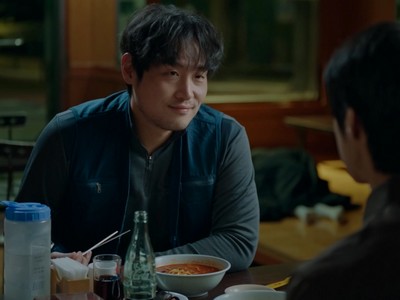
In a flashback, Dong Joon's dying mother rejected her son's pity. She advised him never to beg anyone for love. This advice applies to his relationship with Kang Hyun. According to the mom's logic, Dong Joon shouldn't waste time pining over somebody who may not return his feelings. Don't be the victim in your own love story. Instead, be proactive and embrace your romantic prospects. There are other guys besides Kang Hyun. It's time to move on from your short-lived teenage crush.
Enter Song Il, the single father who bonds with our protagonist. In the past, Song Il suffered hardships and heartbreaks. His lengthy chat with Dong Joon evokes deja vu, resembling the scene with Little Hippo. This time, the roles are reversed. The story compares Dong Joon's ambition and his partner's cowardice. Despite hard circumstances, Song Il tries to improve his life. He juggles between a construction job, single parenting, and adult education. Song Il & Dong Joon are both overachievers moving with a forward momentum. Their similarities make them compatible romantically.
If Dong Joon were to move on from Kang Hyun, Song Il would be an ideal partner. The story mentions Song Il's male lover, confirming his same-sex attraction. Also, his humbleness counters Dong Joon's ego. Song Il calls out his professor's mistake in class, knocking him down a peg. In addition, Song Il references his three-year sobriety. He influences Dong Joon not to overindulge in alcohol. Song Il provides much-needed stability to Dong Joon's volatile habits. Whenever our protagonist suffers another slump, his new love interest is there to catch him before he falls.
Empowerment
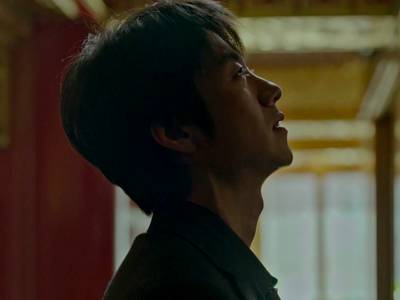
Dong Joon meets with his father for an obligatory family meal. It doesn't take long before the dad's homophobic jabs start. He turns his son's sexuality into gossip for entertainment. This time, Dong Joon stands up for himself and gives an empowering speech about being gay. If anyone feels embarrassed, it should be his dad for his ignorance. Following Kang Hyun's advice, Dong Joon learns to take pride in his attraction. After he storms off, Young Ji holds his hand for the first time. She approves of his courage!
This confrontation marks Dong Joon's emancipation from his father. Her mom's earlier advice extends to family connections. Don't beg anyone for love, including a homophobic parent. Dong Joon's empowerment doesn't just come from self-acceptance. It also arises in his ability to break free from toxic relationships. Dong Joon's dad had never shown any respect. Despite his son's accomplishments, he only focuses on humiliating him. Instead of trying to compromise, Dong Joon learns to stop seeking love from his father. He spends his time on building other meaningful bonds.
In this universe, Dong Joon loses many loved ones. He has cut ties with his dad and stepfamily, especially after that ugly confrontation. Also, his sister is about to die. Since he isn't close with his niece & brother-in-law, they can't offer much support. Song Il and his daughter have the potential to be Dong Joon's new surrogate family. Despite the challenges of single parenting, Song Il is a devoted father who tries to be present for his child. Although their relationship is still developing, he can provide Dong Joon with the family warmth that has been missing from his life.
Opportunity
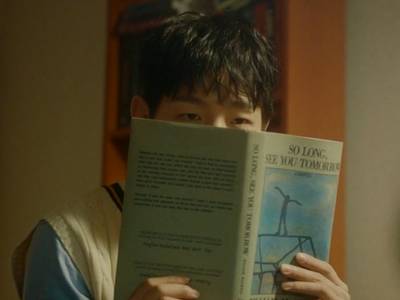
The difference between the two timelines is Dong Joon's proactiveness. The movie illustrates this with a set of flashbacks. The first memory shows Kang Hyun making intimate eye contact with Dong Joon. Eventually, he conceals his face with a book. Dong Joon sits idly and does nothing, representing a missed opportunity. In contrast, Dong Joon speaks up during the second memory. Kang Hyun puts down the book and holds his gaze. Dong Joon is rewarded for his initiative.
At the end of the second arc, Dong Joon has an opportunity to start a relationship with Song Il. The single dad wants to have another meal, wink wink! Young Ji won't tag along this time, proving he isn't just looking for a babysitter. Song Il shows interest in getting to know him better. Dong Joon agrees to the date, a hopeful sign of their mutual connection. Throughout their exchanges, both men have been assertive and shown initiative. Instead of waiting passively, they take charge of their fates. The reward for their autonomy is a promising romantic prospect.
As with the other two universes, Dong Joon discovers Kang Hyun has authored a famous book. There's ambiguity about whether Dong Joon will contact his old friend. Judging by his current trajectory, Dong Joon may have moved on from his teenage crush. He doesn't waste time waiting for Kang Hyun's love anymore. Instead, Dong Joon pursues a new romantic opportunity. Whether the courtship with Song Il lasts, having options is empowering. The most important takeaway is that Dong Joon controls his destiny. He decides on the relationships that make him happy.
Escape
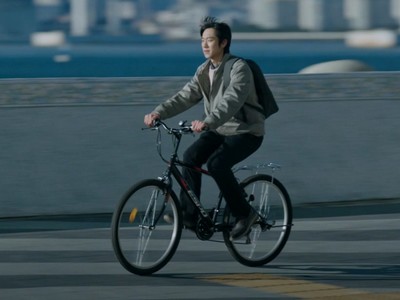
Between living passively and pursuing opportunities ambitiously, there's one more option. You can escape from the past and reset your life. The movie's third arc shows Dong Joon's new beginnings in another city. He has relocated from his hometown and stopped contacting his family. Here in Busan, nobody knows about Dong Joon's history. His boss sees him as a total enigma and seems surprised when hearing about his personal life. The fresh start allows Dong Joon to reinvent himself without any baggage.
The movie uses a subtle motif to denote Dong Joon's restart. We see him riding a bicycle to the office. His boss drives a vehicle in this bustling city, whereas he is a cyclist. Later, we discover that Dong Joon owns a car. Yet, he chooses to bike when commuting to work. His quirky transportation method represents Dong Joon taking an alternative route in life. He embarks on a path differing from the one that seems predestined for him. Fittingly, Dong Joon drives when he reaches out to his family. The car connects him to his old existence, but the bike allows him to explore new possibilities.
"Moving on" and "starting over" are similar concepts. Both require taking the initiative to begin a new life. However, the psychology is different. When Dong Joon moves on, he keeps in touch with his family. He addresses his complicated history as his old and new lives intertwine. When Dong Joon starts over, he avoids everyone from his past. His dying sister can't even contact him. Getting a fresh start is another way of saying he runs away from his problems. He's hiding from what makes him uncomfortable. Evasion is a symptom of fear, the opposite of living courageously.
Humility
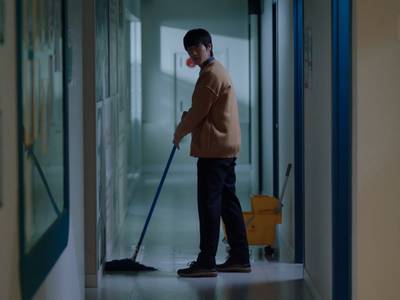
In this universe, Dong Joon works for a small tutoring centre. This occupation may seem less prestigious than being a professor or a teacher, but one of the perks is privacy. Dong Joon's colleagues don't know about his past. He gets away with a comfortable degree of anonymity in the workplace. In addition, he keeps respectable boundaries with his students. They don't harass their instructor for his sexuality. As someone looking for a fresh start, Dong Joon picks a job that won't draw attention to his personal life.
Working as a tutor isn't the most glamorous job. Besides teaching, Dong Joon must take on janitorial duties. He mops floors, cleans windows, and takes out the trash. While Dong Joon never complains about doing manual labour, these chores aren't befitting for an instructor. After completing your studies and obtaining a teaching license, you don't expect to scrape gum from the floors. The story wants to highlight that Dong Joon is being humbled. His work conditions are less than ideal. In exchange for privacy and anonymity, he must sacrifice comfort.
Starting over isn't easy. You must give up on the reassuring aspects of your old life, including accomplishments. You'll have to rebuild from scratch, despite any past qualifications or pre-existing legacies. The transition requires humility, forcing you to let go of your pride. This experience happens all the time to immigrants or refugees, who leave behind their old lives for new settlements. While Dong Joon's circumstances aren't as drastic, he still faces humble beginnings. The price of resetting his life involves surrendering many comforts and privileges.
Abandonment
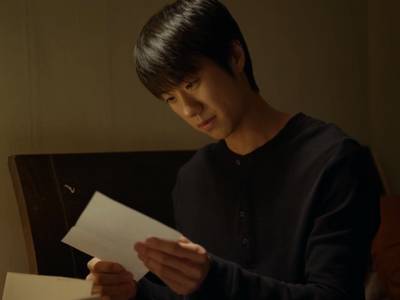
Dong Joon isn't the only character who escaped his existing life. Dong Joon's father also abandoned his parental responsibilities and started over with a second family. After his wife's death, he married a new woman and settled down with two kids. The dad puts little effort into keeping contact with the children from his other marriage. He thinks sending money to his daughter is enough. Dong Hee feels so resentful that she won't tell him about her cancer. She only wants loved ones by her deathbed, which excludes her absentee dad.
Both Dong Joon and his father ran away from their demanding family obligations. Like father, like son. Abandonment issues are in their genes. In this universe, Dong Joon has a teenage child from an unplanned pregnancy during his youth. After Kang Hyun left him heartbroken, Dong Joon must have "started over" with a girl. He evaded his same-sex attraction and charged in the opposite direction. Rather than face his parental responsibilities, Dong Joon becomes a deadbeat dad. He leaves the kid in his estranged family's care.
Raising a child and fulfilling your dreams are sometimes incompatible. Parenthood is a lifelong commitment, potentially limiting your career options and romantic prospects. Dong Joon's mom quit her acting aspirations once she settled down and gave birth. Dong Joon may have feared ending up like her, getting locked into family duties during the golden years of his youth. For all the talks about living ambitiously and pursuing opportunities, being a father is a roadblock. As pressure mounts, Dong Joon buckles. He abandons his old life and runs away.
Redemption
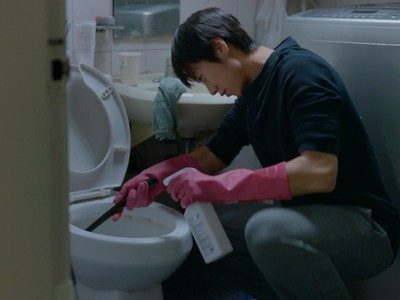
What type of father abandons his children? Although circumstances differ for everyone, Dong Joon's rationale is that parenthood became too big of a commitment for him. He stops making the effort after a while. But that was then. Years later, Dong Joon admits his actions were wrong. As he aged, his thinking became more mature. Min Ho's recent troubles with the law are a cry for help, indicating the teen needs family guidance. His son's origami gifts also evoke a paternal sensibility in Dong Joon.
Dong Joon's mom once stated that having kids can bring immense sorrow and joy. It took Dong Joon much longer to figure out the joyous part. Many factors influenced Dong Joon to realize fatherhood is a blessing, not a burden. Now apologetic and remorseful, he wants to make amends for his mistakes. Although he was once a deadbeat dad, should we not celebrate him for putting in effort? Some people never change their ways. Dong Joon's father doesn't care and remains a neglectful parent. In contrast, Dong Joon is at least cognizant of his wrongdoings.
Dong Joon seeks redemption. Our protagonist made mistakes in the past, but he is trying to improve. He invites Min Ho to live with him, fulfilling his duties as a father. They write lengthy letters to reaffirm their commitment. In addition, he contacts his estranged sister and repairs their bond. Later, we see him cleaning the apartment, symbolic of purging his impurities. Dong Joon is starting over again, but it doesn't involve running away this time. Humbled by what he once did wrong, Dong Joon uses these experiences to ensure he becomes a better guardian.
Growth
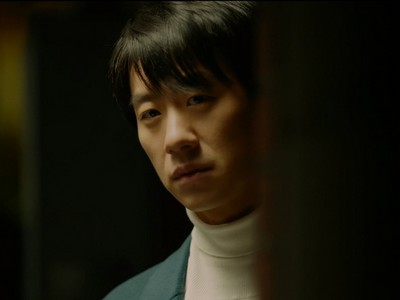
Dong Joon's mother imparted wisdom to her children throughout the movie. From "live courageously" to "don't beg anyone for love", the recurring theme in her advice emphasized dignity, integrity, and moral strength. The mom shared another insightful quote with him. "I'm not interested in what you do for a living. I'm more curious about the type of person you'll be." She didn't attribute Dong Joon's success to achievements or aspirations. Instead, she prioritized his principles.
Ultimately, it doesn't matter whether Dong Joon works as a teacher, professor, or tutor. Other personal details, like his love life and family relationships, are relevant but not the most significant. They only provide some additional context. Instead, the valuable takeaway from each alternate universe is what Dong Joon learns at the end. These guiding principles dictate the type of person he becomes. They determine whether he is happy in the future.
Let's summarize his growth from each arc:
In Universe #1, Dong Joon learns to be courageous. Before, he felt insecure about his sexuality or being vulnerable around others. Dong Joon's loved ones offer encouragement, reassurance, and unconditional support. They give him confidence and guide him out of his comfort zone.
In Universe #2, Dong Joon learns to break free from the past. He stops wasting time on old romances and toxic relationships. Instead, he moves on to build meaningful bonds and explores new romantic prospects. Dong Hoon controls his destiny by choosing whoever makes him happy.
In Universe #3, Dong Joon learns to make amends. Before, he abandoned his past and got a fresh start elsewhere. Dong Joon realizes running away from his problems is the wrong approach. He learns to accept his mistakes while using these experiences to improve.
So Long, See You Tomorrow Ending Explained
Ending
Regrets
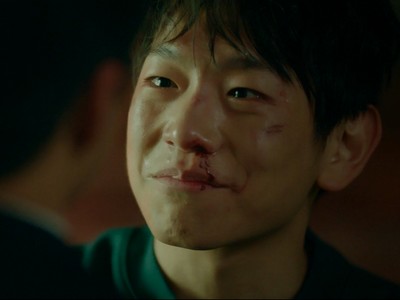
The night Dong Joon didn't say goodbye to Kang Hyun marks a lifetime of regrets. Dong Joon failed to offer comfort or reassurance on the darkest day of his friend's life. He stood still while watching Kang Hyun's psychological collapse. Later, life gave him another opportunity to chase after the car and say goodbye. Yet, Dong Joon hid as he let a second chance slip by. It was the final time these teens saw each other. Since Kang Hyun relocated afterwards, they remained separated for decades.
Dong Joon resented his cowardice, causing him to miss the last farewell with his friend and lover. Years later, he couldn't move on from this long-lost teenage relationship. It haunted him in his 40s. Dong Joon continued to blame himself for his mistake that night. He'll never find relief from his lifelong regret. Dong Joon conceived three alternate universes, each depicting a reimagination of his adult life. Some were hopeful, others less happy, but none of the fantasy futures contained a reunion with Kang Hyun.
The story made us assume that a fateful night changed the trajectory of two teenage lives. Yet, it introduces a twist in the film's final stretch. What if that evening played out differently? The movie presents the events in the original timeline, also known as the fourth alternate universe. In this world, Dong Joon gathers his courage and runs after the police car. The lovers get to see each other one last time. As Dong Joon expresses his love, Kang Hyun gives reassurance. "I'll see you tomorrow," he says, not knowing they'll be apart for the next three decades.
Risk
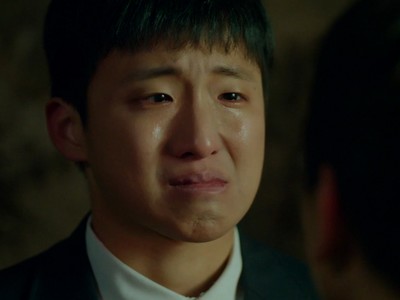
Finding the courage to say goodbye that night isn't easy for Dong Joon. It goes against every instinct in his nature. This closeted teenager suffers from low self-esteem. He is bullied by peers, ridiculed by family, and loathed by himself. Dong Joon responds to his misfortune like a meek, passive victim. He lacks the guts to express his feelings or pursue his happiness. His reaction is to cower in fear when faced with adversity, like he initially does during Kang Hyun's collapse.
Yet, Dong Joon takes an uncharacteristic risk. He becomes assertive, possibly for the first time in his life. As he chases after the police vehicle, every step celebrates his newfound conviction. His upsurge of courage originates from Kang Hyun's influence. Kang Hyun is a beacon of self-assurance. He encourages Dong Joon to leave his comfort zone, liberating him from his insecurities. From standing up to the bullies to defying the stigma against same-sex attraction, Kang Hyun leads by example. Dong Joon has absorbed his lover's courage, empowering him to take initiative.
Dong Joon's love for Kang Hyun changes him as a person. Even after his companion's absence, Dong Joon continues to take risks and live ambitiously. "I rebelled like he did." Contrary to his nature, he won't fall back into insecurities. The transformation is remarkable because Dong Joon doesn't experience this breakthrough in the other alternate universes. In every parallel world but one, he succumbs to his cowardice. Being courageous doesn't come naturally for him. Nonetheless, he has succeeded in this current timeline. Dong Joon gains the valour to strive for tomorrow.
Reunion
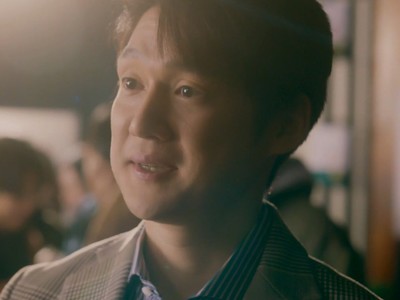
Dong Joon and Kang Hyun meet in the final scene. Decades have passed since they last saw each other, but Kang Hyun's promise of "see you tomorrow" has finally come true. After his mom's death, he relocated overseas with a relative. He used that time to recuperate mentally. The adult Kang Hyun currently teaches at an American university. Not only has he recovered, but he's thriving professionally. Kang Hyun is also openly gay, another reminder of his everlasting self-assurance.
Notably, Kang Hyun has penned an award-winning book. He wrote it as an apology to Dong Joon. Sorry that it took so long for us to meet again. Called "Every Maybe is Pain", the novel is loosely based on Kang Hyun's adolescent experiences. The title alludes to this movie's themes and captures the uncertainties encountered in various alternate universes. "Maybe" is a painful word because it describes the emotional toll of choices and consequences. One wrong decision can lead to a lifelong regret, making you scrutinize missed opportunities.
The famous book draws Dong Joon's attention. The leads meet at a convention and recognize each other instantly. As they embrace, the movie features a flashback of their teenage selves. It reminds us this long-awaited reunion has been over three decades in the making! "I want to tell him how that one moment changed me as a person," Dong Joon narrates, referring to his fearlessness on the fateful night. Without taking a momentous first step, he may not have stood as confidently before his lover today. From cowardice to courage, Kang Hyun is his inspiration for living.
Universes
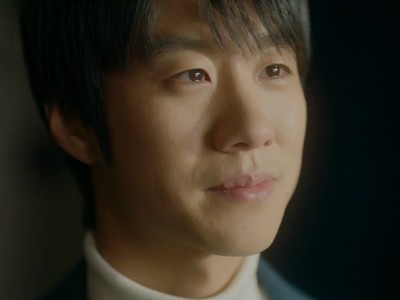
The leads meet happily in this universe because Dong Joon's courage that night translates into a lifetime of taking initiative. He has become more confident and assertive since then. But what about the different versions of Dong Joon in the other parallel worlds? The movie's ending suggests that his remarkable transformation occurs in every timeline. It may not have happened during that evening, but Kang Hyun's influence is so impactful that Dong Joon will change regardless of the timing.
"All those stories would end the same way. He exists in all parallel universes. He was my universe." Wow, did you feel that? Those words struck me like a literary earthquake of epic proportions. 🤯 Kang Hyun's novel appears in all the alternate universes, showing his prevalent influence on Dong Joon's life. However, the book is just a plot device. The real driving force is Dong Joon's character development. Each version of him experiences growth. They'd reach the same conclusion as Dong Joon in this timeline, taking the initiative to contact Kang Hyun and reunite with him.
In Universe #1, Dong Joon is on the verge of a breakthrough. He finally starts becoming vulnerable in front of others. With more encouragement from his family, Dong Joon will soon find the confidence to conquer his insecurities. Go on, Dong Joon! Contact Kang Hyun! As your sister would say, we know everything about you and your glass closet. And we're all on your side.
In Universe #2, Dong Joon has just started a relationship with Song Il. He can pick between his old crush or a new love interest. The movie suggests that either choice will make him happy. Having options is empowering. Dong Joon decides which man suits him best, ultimately settling on his favourite. With that said, the right choice is clear. As much as I adore Song Il, Dong Joon only knew the guy for a few days. Kang Hyun has much more history with our protagonist, giving him a competitive advantage.
In Universe #3, Dong Joon is already on an apology tour. After many years of wronging his estranged son and sister, he recently made amends with them. Not only does Dong Joon show remorse, but he is willing to own up to his mistakes and change for the better. By the same logic, Dong Joon should be ready to contact Kang Hyun and apologize for his inaction that night. The couple will reconcile and reconnect.
So Long, See You Tomorrow Information
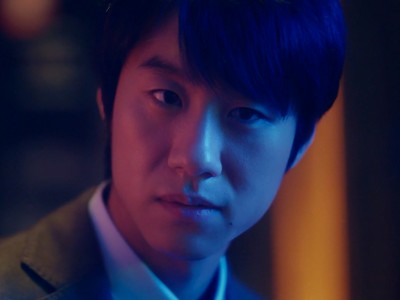
- Start Date September 13, 2023
- Movie Length 2 hours and 20 minutes
So Long, See You Tomorrow is a Korean movie that released on November 4, 2021 in festivals and September 13, 2023 in cinemas. It is a long film, which you can finish in around 2 hours and 20 minutes. Baek Seung Bin (백승빈) is the movie director.
Links
- MyDramaList So Long, See You Tomorrow MyDramaList
You were a 100% right about this this precious, deep and brilliant movie. Thank you for the profound and enlightening review.
Thank you for your comment! The first time I watched it, I was astonished. As I rewatched it, the finer details resonated with me even more. I love all the layers to the story. I don't know if I captured everything in the review, but this movie's magnificence inspired me so much. It's the kind of film that will stay with me for a long time.
This looks like a must watch.
Can't find it on any streaming service in US.
Where did you find it?
Yes, put this on the must-watch list for the future. It gets the BL Watcher stamp of approval.
I'm not sure about the release schedule in the US, but I hope it becomes more readily available.
thank you BL Watcher for your review: it is always very good, but this one was much needed for me as I am not korean nor am I a natif English speaker so watching this complicated movie in korean with english subtitle was not easy… But I still loved it! That is why I came to read what you had to say about it and meanwhile I tryied to understand that great movie a little more… keep up the good work, I keep coming back to read your review and I agree with 90% of them (I did like Jun & Jun!)
Thank you so much for your comment! I'm glad the analysis was helpful. This movie was so complex that I didn't understand everything at first. It took me a while to think about how all the storylines connected. The more I analyzed it, the more details I noticed. Every discovery makes the movie even more fascinating.
I appreciate your support and encouragement! Agreeing 9 out of 10 times is a good track record, haha~
Amazing in depth review from you as always! It's like I'm back in film school again, analysing every detail, twists and nuances. I love it.
What an amazing story telling indeed! They way it subtly changes to the other universes (yes it also took me mid-way thru the film to realise the change!).
I'd like to recommend Monster (2023) by Hirokazu Kore-eda that I've watched a couple of days ago. Beautiful film and amazing amazing storytelling too! Similar to this one. It won best screen play and got the queer palm award at the recent Cannes Film Fest!